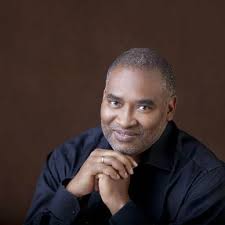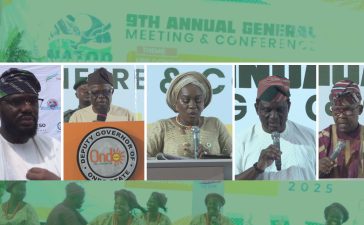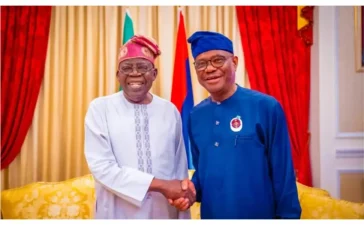In a heartfelt discourse with Pastor Wale Adefarasin, General Overseer and Senior Pastor of Guiding Light Assembly, Park View Estate, Lagos, the significance of Nigeria’s national anthems, both old and new formed highlights of the conversation with a focus their historical context and emotional resonance and impact on Nigeria as a nation.
At just eight years old, Pastor Adefarasin was already aware of Nigeria’s diverse tribes. Reflecting on the line “though tribes and tongues may differ in brotherhood we stand,” from the old anthem, he stated that these lines emphasize the importance of unity despite differences. While some have argued that terms such as “tribes” and “tongues” are colonial and derogatory, he insists that their use in the anthem is appropriate and non-offensive.
“The term “motherland” in “Arise O Compatriots” is another point of contention. This is because in ‘Arise O Compatriots’, you know as we grow up we have more affiliations to our mothers. When I used to go to secondary school you could say what you could say to someone’s father but by the time you abused someone’s mother, that was big trouble so we’ve always been protective of our mothers because our mothers are the only ones we can say with assurance is our mother.
In the second stanza of the old anthem, themes of truth, justice, and unity are prominent. Pastor Adefaarasin stresses the need for these values in modern Nigeria, where truth often falters and justice seems elusive. According to him, they highlight the anthem’s call for succession and responsibility, emphasizing the importance of passing on unstained values and vision to future generations.
“We have a responsibility to sustain our values, our nation, we can’t do that if we can’t inculcate our values, our vision in the people coming behind us. We have so much problems with our leadership today, we see people in their 80s’ and 90s’ running for leadership. Whereas, we see younger people in other climes taking up leadership and doing a great job. And so, passing on to our children a banner without stain is very key.”
He also described the third verse as one that holds a special place in his heart as it is a prayer, a timeless plea for nation-building. According to him, this is a crucial task for Nigeria, which unlike South Africa, did not experience pre-independence industrialization.
“We need to build this nation. This nation was not readily built, it wasn’t like South Africa where they had already industrialized to a degree before you had the majority rule. We have to build this nation. And one of the challenges we have to building this nation has been oppression, so we were praying for something that is real, for something that is necessary and those are my reasons for so liking the old national anthem.
“Then to the new one, you know it came from the military government now let me say about the old outcome again that I found an article in the Daily Times in the 19th century, 1959, inviting people to enter a competition to write. There were often the reward of a thousand pounds which I assure you was a lot of money in those days and there was a panel I think of five people and most of them were Nigerians who adjudicated and determined which was the best anthem to go for.
“So it wasn’t an anthem they imposed on us by the colonialists and you know where people have criticized the anthem, they said because it was written by the colonialists. But we are quite happy to drive cars that were built by colonialists, built by Germans, built by Japanese, we wear watches and shoes made abroad. As a matter of fact today, in Nigeria we even used tooth picks that have come from abroad and we are contesting an anthem.
“The creation of the old anthem, “Nigeria We Hail Thee,” involved a nationwide competition in 1959, offering a significant reward for the best submission. The winning anthem was chosen by a panel of mostly Nigerians, dispelling the notion that it was imposed by colonialists. “
Conversely, he criticized the new anthem, “Arise O Compatriots,” for its military tone, a reminder of the military’s disruptive influence on Nigerian politics. He argued that the anthem feels like a patchwork, lacking the cohesive and heartfelt sentiment of its predecessor. According to him, “Nigeria We Hail Thee,” sung sincerely, could inspire true patriotism and love for the country.






